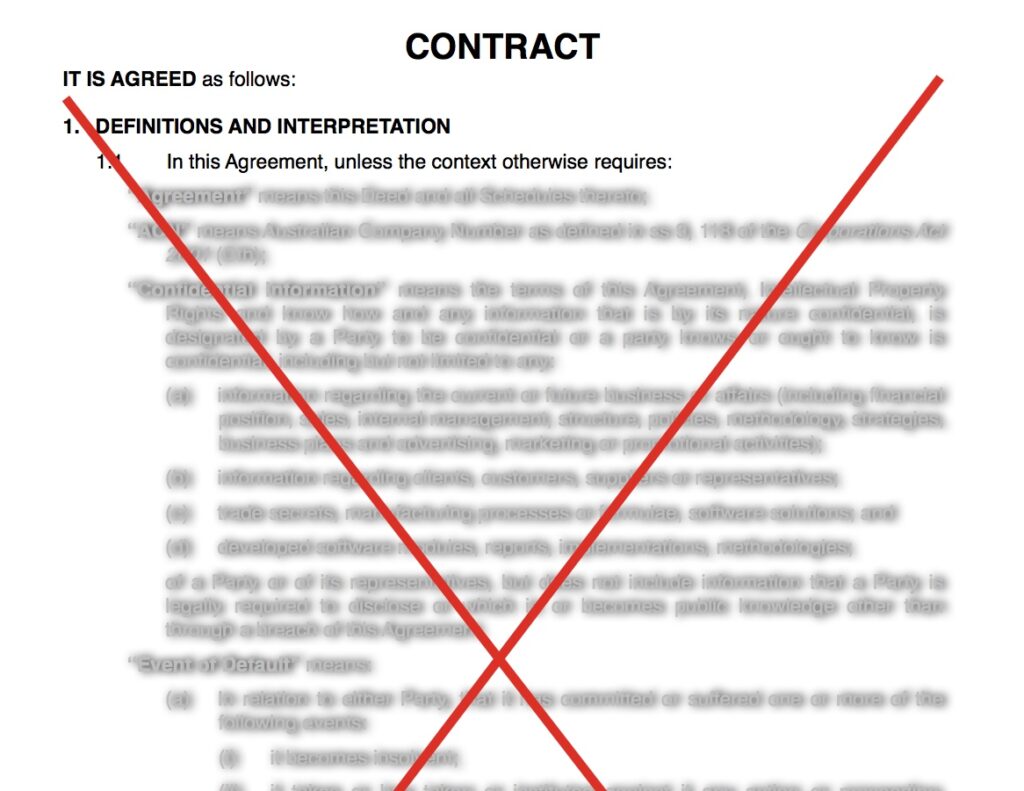Are you ready for the new regime? If you are a small business, or deal with small business you need to be on top of the changes being introduced by the Unfair Contract Terms laws commencing on 12 November 2016. The changes will extend protections now only afforded to consumer contracts to small business contracts.
The new law states that a term in a small business contract is void (treated as if it does not exist) if:
- the term is in a small business contract;
- the contract is a standard form contract; and
- the term is contract is unfair.
What is a small business contract?
A small business contract is a contract:
- for the supply of goods or services, or the sale or grant of an interest in land;
- at the time the contract is entered into, at least one party to the contract is a business (includes not for profit organisations) that employs fewer than 20 employees (includes part time and regular casuals); and
- the “upfront price” payable is equal to or less than $300,000 or if the duration of the contract is for more than 12 months, the “upfront price” payable is equal to or less than $1,000,000. The upfront price is essentially the amount disclosed at the time the contract was entered into.
What is a standard form contract?
The regime doesn’t define a standard form contract, but a contract is presumed to be a standard form contract unless proved otherwise. In determining if a contract is a standard form contract the Court may take anything into account, but must take into account: the bargaining power of the parties, whether the contract was prepared by one party before any discussion, whether the contract was offered on a “take it or leave it” basis, whether there was any ability to negotiate terms, whether the terms take into account the specific characteristics of the deal.
What is unfair?
A term is unfair if all of the following tests are satisfied, the term:
- would cause significant imbalance in the parties’ rights and obligations arising under the contract;
- is not reasonably necessary in order to protect the legitimate interests of the advantaged party, unless that party can prove that the term is necessary to protect their interests; and
- would cause detriment, whether financial or otherwise, to a party if it were to be applied or relied upon.
It is the Court that determines if a term is unfair and therefore void. In determining if a term is unfair the Court may take into account such matters as it thinks relevant, but must take into account the extent to which the term is transparent (expressed in plain language, presently clearly and is readily available to any party affected by the term) and the contract as a whole.
The types of terms that may be unfair include:
- terms that enable one party (but not another) to avoid or limit their obligations under the contract
- terms that enable one party (but not another) to terminate the contract
- terms that penalise one party (but not another) for breaching or terminating the contract
- terms that enable one party (but not another) to vary the terms of the contract.
For more information please contact our friendly and professional team at Peter Speakman & Co on 9822 8611.




